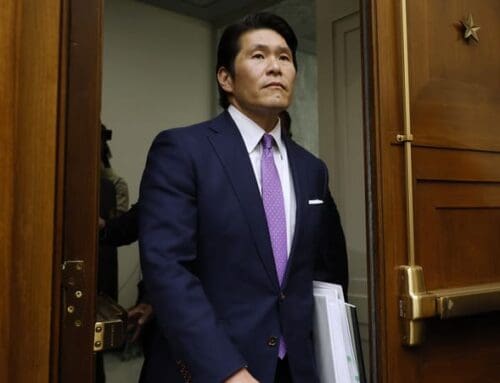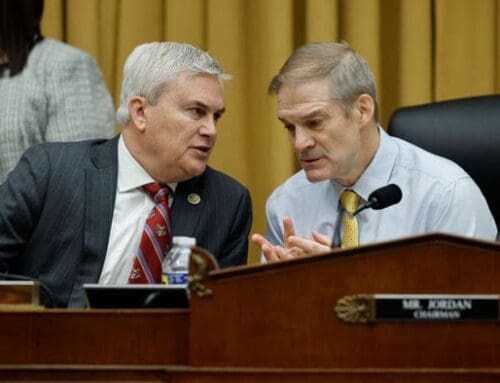

The free market works: the case of Poland
Over the last three decades, Poland has become the most successful economy in Europe in terms of consistent growth. Since 1989, the country has increased its GDP per capita by almost 150 per cent. In PPP terms, Poland’s GDP per capita grew from US$10 300 in 1990 to more than US$29 000 in 2019 (in 2011 constant dollars).
In September 2018, Poland hit another milestone with its promotion to ‘developed market’ status in indices run by FTSE Russell. It became the first country in Europe to make the step up, and the first country in the world to be awarded such an upgrade in almost a decade.
From the very beginning Poles seemed to know where they were going: towards European integration. In the process, they adopted Western institutions, rules, and social norms that are at the very foundation of economic development: the rule of law, independent monetary policy, robust competition, free press, and democracy.
Poland was also more thorough in introducing market-oriented reforms at the beginning of its transition from a socialist economy to a free market one in the late 1980s and early 1990s. This helped to spawn a private sector boom and move the country out of the post-transition recession already in 1992, before other countries in similar positions.
Poland was also quick to follow the early market reforms with robust institution building, and was rewarded with an accession to the Organisation for Economic Co-operation and Development, a rich nations’ club, in 1997. Quite importantly, it managed the privatization process in a broadly efficient and transparent way. There are no Polish oligarchs today. Lastly, Poland benefited from a large and rapidly growing domestic market, which helped to insulate it from external shocks, such as those in 2008-09.
Shock therapy
Following on from decades of economic mismanagement by the Soviet-backed authorities, the Prime Minister at the time, Tadeusz Mazowiecki, put economist Leszek Balcerowicz in charge of the country’s finances in 1989, as the Cold War was coming to an end. Mr Balcerowicz and a team of economists came up with a set of reforms that would popularly become known as “shock therapy”. Almost overnight these rules levelled the playing field for foreign and private companies, made the Polish currency, the zloty, internationally convertible and essentially banned the government from propping up state-owned enterprises.
The reforms initially did cause a lot of pain, with thousands of state-supported companies shutting their doors, putting 1.1 million Poles out of work. A predicted recession lasted well into 1992 and cost 15% of Poland’s GDP. However the reforms did set the table for a capitalist revolution, in which almost anybody with a decent idea for business could become a successful entrepreneur. This explosion of entrepreneurship was initially messy, with people hawking their wares on pavements and out of car boots, but by 1995 Poland’s economy was growing by nearly 7 per cent a year compared to Hungary (1.5 per cent) and the Czech Republic (6 per cent). It was also clearly outpacing countries which had officially been part of the Soviet Union, such as Ukraine (-12.2 per cent) and Russia (-4.1 per cent).
Out of this mess rose self-made Polish entrepreneurs who contrasted with the oligarchs who gobbled up state assets in places like Ukraine. These entrepreneurs helped build an economy less vulnerable to external shocks than the economies in Poland’s neighbours. In 2009, while the rest of Europe was in recession, Poland continued to grow without a single quarter of negative growth, thanks to the country’s robust domestic market.
Growth champion
As senior economist at the World Bank Marcin Piatkowski notes in a London School of Economics blog post titled Poland has become Europe’s growth champion, but can this success continue?:
‘For more than a thousand years of its history, Poland (and the rest of Central and Eastern Europe) was a perennial economic underachiever, stranded on the distant periphery of the European economy. From the start of the 17th century until very recently, Poland’s GDP per capita PPP almost never exceeded half of the average level of Western Europe. In 1991, at the bottom of the post-communist recession, the average income of a Pole plummeted to less than one quarter of the income of an average German (and less than one tenth in nominal terms).
‘Poles also earned less than the citizens of Gabon, Ukraine or Suriname. Much like Adam Smith, who derided 18th century Poland for not being able to produce ‘any manufactures of any kind, a few of those coarser household manufactures excepted, without which no country can well subsist’, at the beginning of the post-communist transition there were hardly any experts who would bet any money on Poland’s future economic success.’
In other words, despite the astronomical pain Poles went through at the beginning, shock therapy or free market reforms were necessary for an economy that had always grossly underperformed to become a growth champion in which many more Poles could enjoy enhanced life prospects and prosperity.
As American novelist Wendell Berry once said: “We must act as a man who knows that the world is not given by his fathers but borrowed from his children.”
May our own country learn from this, and from the example set by the Poles in reforming their economy and society and unleashing the market.
The views of the writer are not necessarily the views of the Daily Friend or the IRR.
If you like what you have just read, support the Daily Friend.








